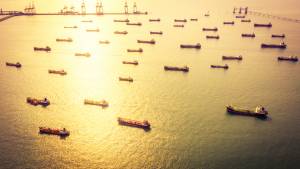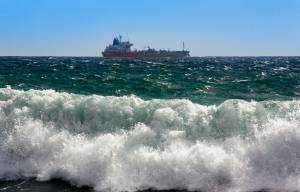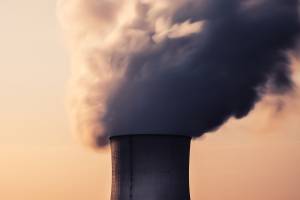Discussion Topic: Ethics and Exports
Project description
In order to avoid dangerous climate change the world must drastically limit its emissions of greenhouse gases (GHGs). A recent report from the IPCC highlights the desirability of keeping global temperature rises to 1.5C
Achieving this goal requires that many states, including Australia, drastically cut their current level of domestic territorial emissions.
Yet, no matter how much Australia cuts its domestic emissions, the emissions produced from our exports are roughly twice the level of domestic emissions. This is a very large contribution to the world’s carbon budget. Yet, the emissions produced from exported fossil fuels are not counted as part of the exporting state’s carbon budget or as part of their liability.
Why ought this issue to concern us? Very simply it is because the production and export of fossil fuels is a key part of the causal chain that leads to emissions. The policies, subsidies and investments that make this activity possible ought also to make Australia responsible for at least some of the consequences of these exported emissions.
This project seeks to understand some of the moral issues raised by the production and export of fossil fuels from Australia. Given the huge role that Australian exports play in national life and their contribution to climate change, we should expect that the topic raises large questions such as: Should we be responsible for emissions in the distant past (historical emissions); why should we take responsibility for exports? (the morality of exports); ought exported emissions have an impact on Australia’s carbon budget? (exports and the carbon budget); why is justice relevant to this issue? (just transitions, social justice and climate change); and, why should an individual reduce their carbon footprint? (duties of individuals);
These are not the only issues that are important by any means. Yet understanding Australia’s and other countries responsibility for exported emissions is a key component of determining what we as a country ought to be held responsible for and how this should effect our climate transition.
The Export Tool, allows you to track where Australia’s fossil fuel exports go and how much GHG emissions they produce.

The Paris Agreement 5 years on: big coal exporters like Australia face a reckoning
On Saturday, more than 70 global leaders came together at the UN’s Climate Ambition Summit, marking the fifth anniversary of the Paris Agreement. Prime Minister Scott Morrison was denied a speaking slot, in recognition of Australia’s failure to set meaningful climate commitments. Meanwhile, t...

New report: ‘Australia: an emissions super-power’
Download the full report here Newly released data from the Office of the Chief Economist shows Australia is increasing it’s contribution to global climate change. New government figures show that the GHG emissions from Australia’s exported fossil fuels have increased 4.4% between 2018 to 2019 ...

A message to the Climate Change Conference: cutting emissions is not enough
The latest round of UN climate negotiations - COP 25 - will begin in Madrid this week. The Conference will attempt to make progress on ramping measures to meet domestic reductions in greenhouse gas emissions. But one thing that COP 25 is unlikely to make progress on is the constraint on the supply o...

The Morality of Exports
With the exception of air and sea travel, most GHG emissions are produced by people within the territories of states, so when it comes to assigning responsibility for the climate harms to which emissions contribute, the task ought to be fairly simple: states should take responsibility for emissions ...

Historical Emissions
The world is running out of time to reduce its levels of GHG emissions. Each year the world emits around 35 Gt of CO2. Avoiding the worst effects of climate change and keeping temperature rises to 2C means we are unable to continue emitting at such a rate; we have a limited time before exhausting...

Ethics and the Carbon Budget
If dangerous climate change is to be avoided, there is only a limited amount of GHG emissions that the world can emit. According to the IPCC, if we are to limit the rise in global temperatures to less than 2°C above pre-industrial levels, or the more ambitious 1.5°C goal, total global anthropogeni...
